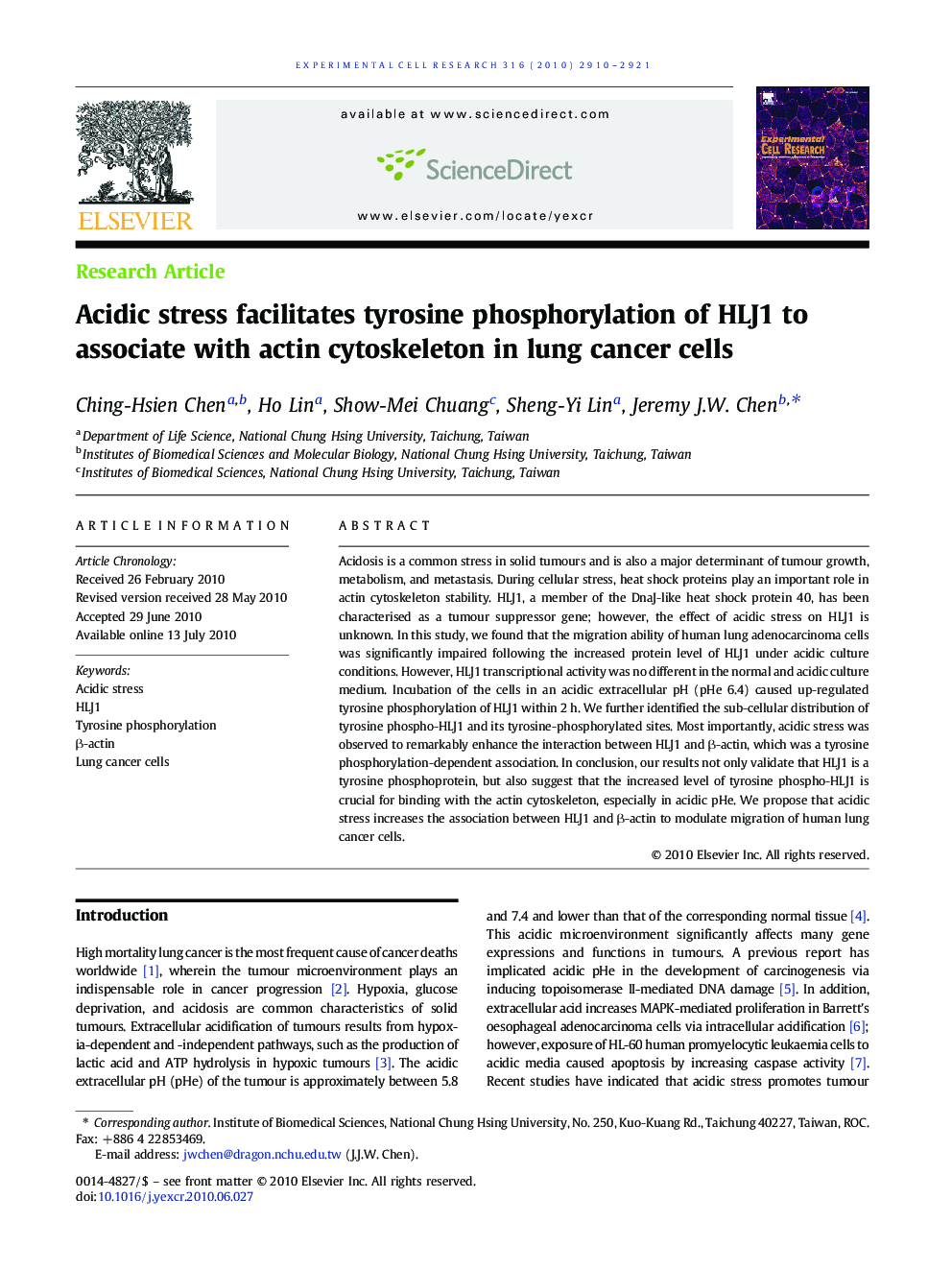| Article ID | Journal | Published Year | Pages | File Type |
|---|---|---|---|---|
| 2131971 | Experimental Cell Research | 2010 | 12 Pages |
Acidosis is a common stress in solid tumours and is also a major determinant of tumour growth, metabolism, and metastasis. During cellular stress, heat shock proteins play an important role in actin cytoskeleton stability. HLJ1, a member of the DnaJ-like heat shock protein 40, has been characterised as a tumour suppressor gene; however, the effect of acidic stress on HLJ1 is unknown. In this study, we found that the migration ability of human lung adenocarcinoma cells was significantly impaired following the increased protein level of HLJ1 under acidic culture conditions. However, HLJ1 transcriptional activity was no different in the normal and acidic culture medium. Incubation of the cells in an acidic extracellular pH (pHe 6.4) caused up-regulated tyrosine phosphorylation of HLJ1 within 2 h. We further identified the sub-cellular distribution of tyrosine phospho-HLJ1 and its tyrosine-phosphorylated sites. Most importantly, acidic stress was observed to remarkably enhance the interaction between HLJ1 and β-actin, which was a tyrosine phosphorylation-dependent association. In conclusion, our results not only validate that HLJ1 is a tyrosine phosphoprotein, but also suggest that the increased level of tyrosine phospho-HLJ1 is crucial for binding with the actin cytoskeleton, especially in acidic pHe. We propose that acidic stress increases the association between HLJ1 and β-actin to modulate migration of human lung cancer cells.
